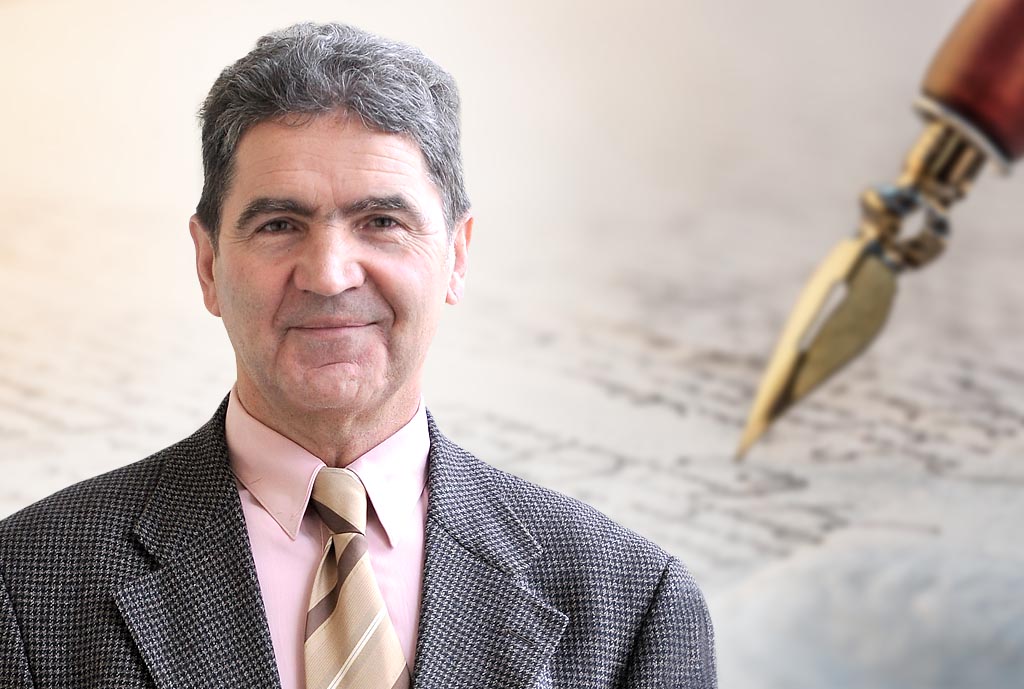By: Dr Janez Juhant
The interview of Ed Žitnik on RTV Slovenia with Aleš Černič on Easter evening was supposed to reflect, if we understood correctly, a religio-logically open, honest attitude towards religion and the Church. Although the interviewee maintained a scientific appearance, political and professional, historical confusions of the “new” transparent scheme of “liberated” RTV Slovenia could not escape the attentive viewer. Therefore: would Easter as the Christian holiday of Resurrection not demand that the interlocutor be a faithful Christian?
Religion remains, regardless of doubts/prejudices, a weighty social phenomenon even among experts. The very definition of the terms “religion” and “faith” therefore requires careful consideration. Experts define “faith” as a person’s relationship to God or to the “ultimate reality”. “Religion”, on the other hand, encompasses teachings, rituals, ways of life, etc., as expressions of this relationship. In an individualised world, expressions should be generalised, understanding even “pop culture” with it, meaning that activities like “cycling”, “workshops at Metelkova Street”, sects, etc., could be considered as “religion”. However, the problem with these is that they are immanent (focused on this world), anthropologically undefined, and more sect-like and intolerant than established religions. An even greater problem arises if they are supported by authority and given propaganda support, enabling a minority to exert violence over the majority, although all civil society organisations should be separate from the state or authority. Left-wing ideological totalitarianism seeks to destroy humanity, nation, and Christianity in this way, which should not be overlooked.
Faith and religions have anthropological ethical standards that ensure balance and survival in modern individualistic consumeristic confusion. Should we not take seriously the thought of Marjan Rožanc that “…the materialised human ultimately realises that he cannot become Human, let alone Übermensch, when God is no longer God”.
Experts and politicians in the mentioned Scandinavian and other serious countries’ programmes take this into account. We have the same criteria for both right and left populism if we examine its (harmful) impact on individuals, families, and nations. Because we have problems here with definitions, evaluations, and counting of civil society groups, a serious problem remains in the background even in the interview: the Catholic Church, the Evangelical Church, and the Islamic Community in the Republic of Slovenia are classified as “useless” with the latest amendment to the law.
AS A RESULT, SLOVENIANS AND CHRISTIANS FEAR THEMSELVES, IMPOSED BY RENEGADES WHO COVER THEIR PRIMITIVE ORIGINALITY WITH FOREIGN TEACHINGS.
Even regarding the preparation of the religion subject, the interlocutors were not fair. In the NCS (National Curriculum Council, 1996−1999), neither the Church nor any other (religious) organisation appointed or withdrew anyone because the NCS was convened without the churches. The composition of the NCS was partly professional, but even more political. At least 20 people were tailored to the “post-communist forces”, and about 7 more for the appearance of Christian or at least value and ideological-political openness. When we realised after a few sessions that we were just for show, we went to the Deputy Prime Minister Marjan Podobnik and demanded that he politically influence to respect the stance of plurality, but he did not support us – allegedly for weighty reasons, so we withdrew from the NCS, which proceeded with its majority. The NCS was supposed to follow the Scandinavian models of teaching, i.e., to provide Christian content in teaching, but it only agreed to maintain more or less cosmetically treated content from the recent past. Therefore, we failed to introduce curriculum-based religious, patriotic, and democratic-pluralistic content. Post-communist ideologues did not accept content about post-war killings or about the revolution at all. Nor did they accept a subject that would systematically present the essence of religion as a fundamental human phenomenon and Christianity as our primary religion, which is essential for Slovenia, as Černič also stated. The mentioned minority in the NCS demanded the introduction of religious education as a compulsory subject for all, which does not ensure selectivity despite all the propaganda against faith and the Church.
Here is some more about Christianity, which is said not to be political, and about the fear of Islamophobia. I believe that in Slovenia, the greater problem is Slovene- and Christianophobia, meaning the political and propagandistic spreading of fear against Catholics and Slovenians because of cultural struggle and entrenched remnants of the revolution. Consequently, Slovenians and Christians fear themselves, imposed by renegades who cover their primitive originality with foreign teachings, as our cultural minds have long warned. Also because of this, Catholics fear their Christian stance, we are unjustly biased against our own people, and we allow opponents and deniers to walk all over us. Our own media, institutions, and organisations ignore, fear, and even negatively direct themselves towards those of us advocating for a Christian and democratic stance and resisting obfuscation.
For a faithful and socially engaged Christian, the interview is also a challenge to reflect on the socio-political role of religion, which the interlocutors saw as a problem, although it is part of Christian social doctrine that encourages Christians to take a decisive and committed socio-political stance if we want to survive as Christians and people in this swamp of values. Regarding such determination, Lambert Ehrlich is a great example. Incidentally, there was also talk about partisans and home guards, which although not directly related to religion, are implications of the revolution that affected both believers and non-believers on both sides. The revolution abolished political pluralism, and even now, according to the speakers, the faithful should not politically engage, even though a believer, like any other citizen in a democratic state, has the right to social activism, and no one has the right to take that away from them.
